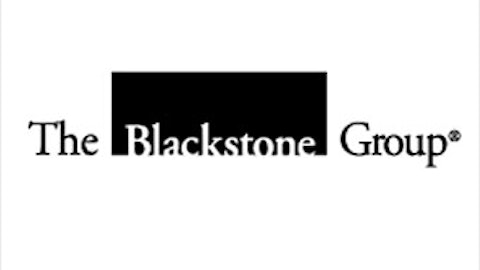When Micheal Dell offered a take-private deal valuing Dell Inc. (NASDAQ:DELL) at $13.65, investors were rightfully furious. His bid significantly undervalued the company, especially to a private owner.

Now, Carl Icahn and The Blackstone Group L.P. (NYSE:BX) have entered the fray.
Here’s the skinny:
Micheal Dell and Silverlake (both large shareholders in Dell) originally offered $13.65 per share to acquire all of the remaining shares they didn’t already own.
Icahn, sensing opportunity, believed $13.65 was too low. In a filing with the SEC, Icahn stated that he believed Dell was worth as much as $22.81 per share. Icahn said he believed Dell Inc. (NASDAQ:DELL) could issue a special $9 dividend, which would leave the “stub” to be worth another $13.81 per share. Icahn has since simplified his position, suggesting that he would acquire several billion dollars in Dell Inc. (NASDAQ:DELL) shares at $15 each. Current shareholders would hold onto the right to participate in the “new Dell Inc. (NASDAQ:DELL),” whereas existing shareholders would have no participation in Micheal Dell’s original take-private offer. Icahn will only buy up to 58% of Dell in his $15 bid – no more, no less. The remaining 42% of shareholders would have to stay on-board.
The Blackstone Group L.P. (NYSE:BX) proposed paying $14.25 for Dell Inc. (NASDAQ:DELL) shares as part of its own take-private offer. The Blackstone Group L.P. (NYSE:BX)’s offer will allow existing minority holders to participate. However, the company intends to acquire any and all shares that it can at $14.25. If it can acquire all holders at that price, then it will certainly do so. If not, it will allow minority holders to participate.
Hopping on this crowded trade
A three-horse race makes the bidding war for Dell Inc. (NASDAQ:DELL) more interesting than it otherwise might be. The dynamics in a three-ended bidding war often end up much better for shareholders than only two participants. While no other parties have submitted bids to acquire Dell, new parties can join in on a partnership with any of the three current bidders.
At or around $14.60 per share, Dell makes for a good low-risk bet on a higher bid. Maximum downside is $0.95 per share on the off-chance that Dell is sold to Micheal Dell and partners at a price that is, so far, the lowest offer on the table. This is highly improbable.
The second-worst outcome is a $0.35 loss per share if The Blackstone Group L.P. (NYSE:BX) takes the cake with a $14.25 bid. Investors would be able to hold onto their shares for future upside.
On the other hand, the current price also offers upside. If Icahn steals the bidding war at $15, investors can grab an immediate profit of $0.40 per share.
Why Icahn’s move helps shareholders
Icahn’s high $15 per share bid is not only the highest current offer, but it is also the highest offer that allows existing shareholders to continue to participate in Dell as a publicly-traded entity. His bid aligns well with a major shareholder, Southeastern Asset Management, which holds shares it acquired at an average price of $16.88 per share.
Southeastern Asset Management seems to have no interest in dumping its shares at a loss. The asset manager’s proxy votes are valuable to any major player seeking to take Dell private. Dell will either have to remain public, allowing further shareholder participation, or more than cover Southeastern’s average acquisition price. The company previously said that it would support a deal in which Dell borrows $9 billion in a dividend recapitalization in which the hardware maker would pay a $12 per share special dividend.
Dell players have tremendous upside with little to no downside. The risk of a deal falling through is quite small, especially with three offers on the table. Additionally, Silverlake, a key partner with Micheal Dell in his $13.65 take-private bid, has left the door open to raising its bid after digesting offers from Carl Icahn and Blackstone.
The best case scenario for shareholders is a lofty take-private bid. Or, second-best, the company will remain public and likely pay out much of its current cash on hand out in the form of a dividend. The worst case scenario, but still a favorable scenario, is that Dell’s cash is used to reduce share count while remaining a publicly-traded company. When it comes to capital allocation, Dell has been a laggard in returning money to shareholders. If it were to use its cash to repurchase shares, the company would offer much better upside leverage.
Is Dell worthy of a flyer? Absolutely. A buyout that allows minority shareholders to participate will undoubtedly unlock much of the value in the Dell brand by correcting capital allocation problems that have plagued the company ever since it began building a cash hoard worth $3.64 per share, not including its finance arm.
The article Should Investors Ride Dell for a Higher Bid? originally appeared on Fool.com is written by Jordan Wathen.
Copyright © 1995 – 2013 The Motley Fool, LLC. All rights reserved. The Motley Fool has a disclosure policy.


